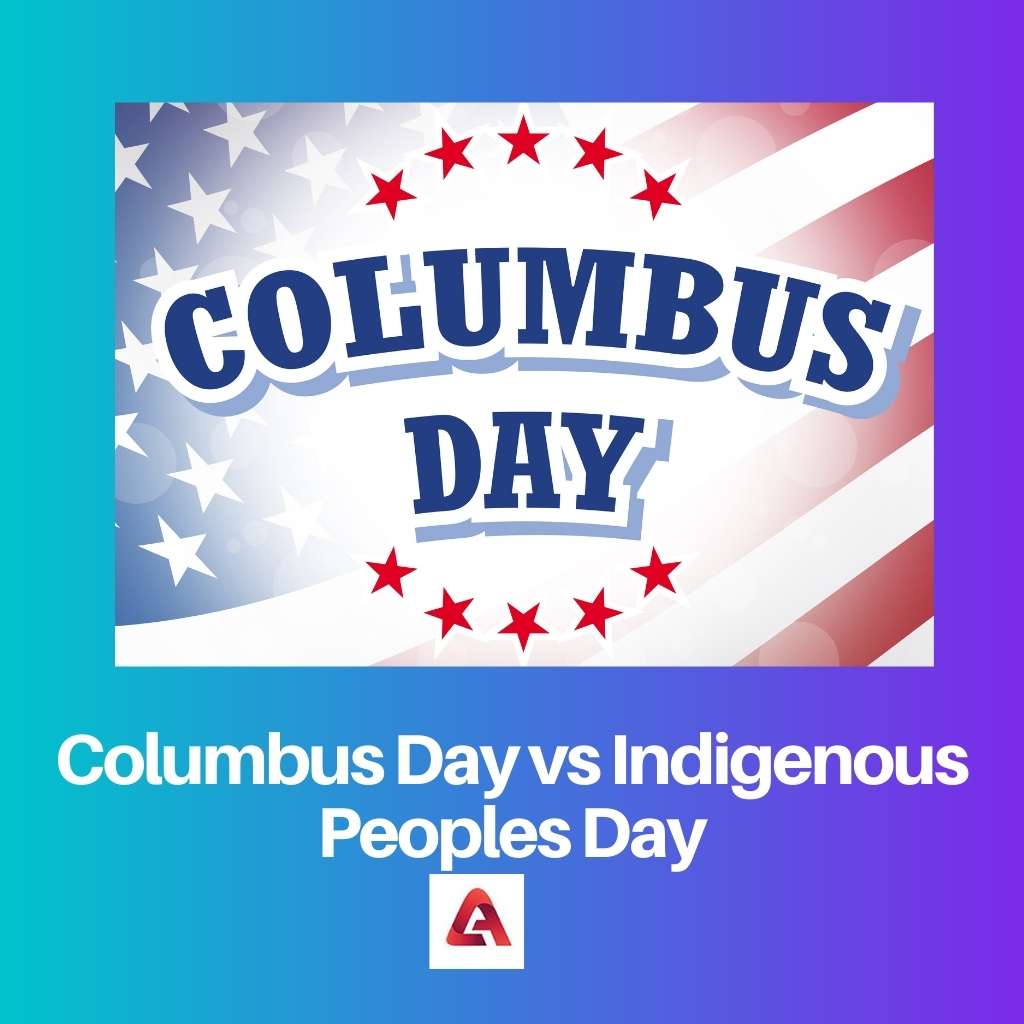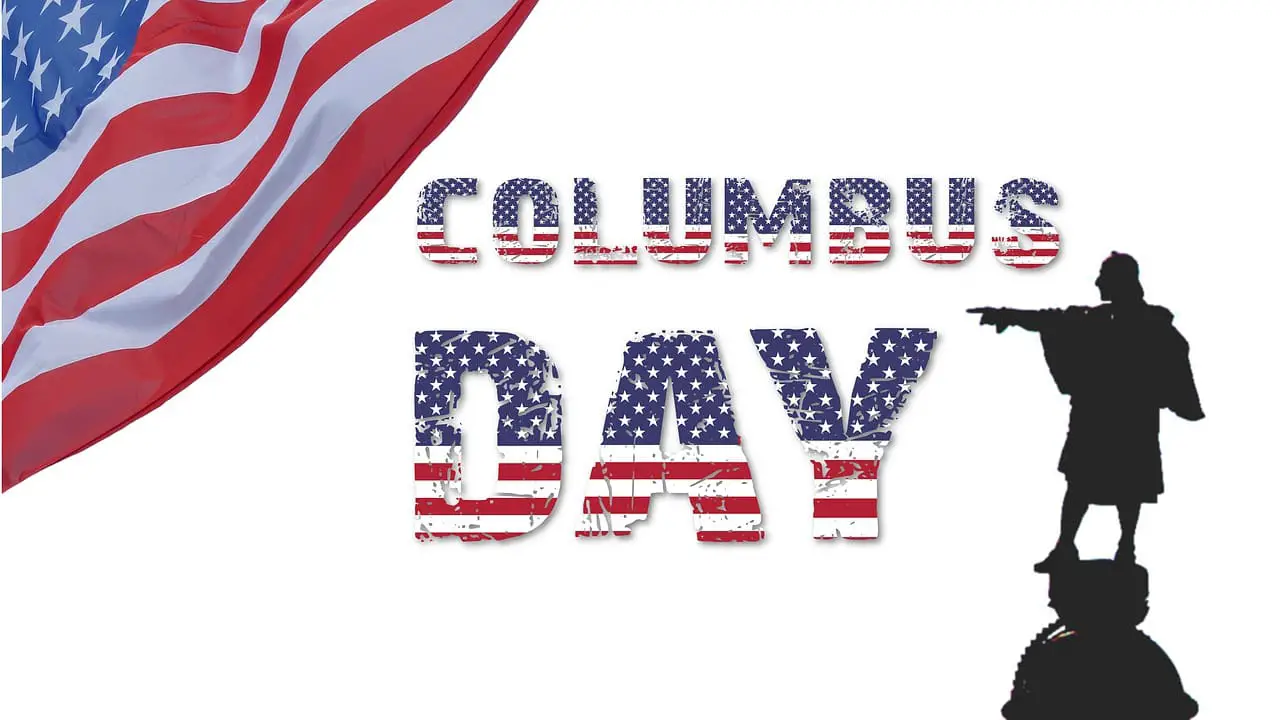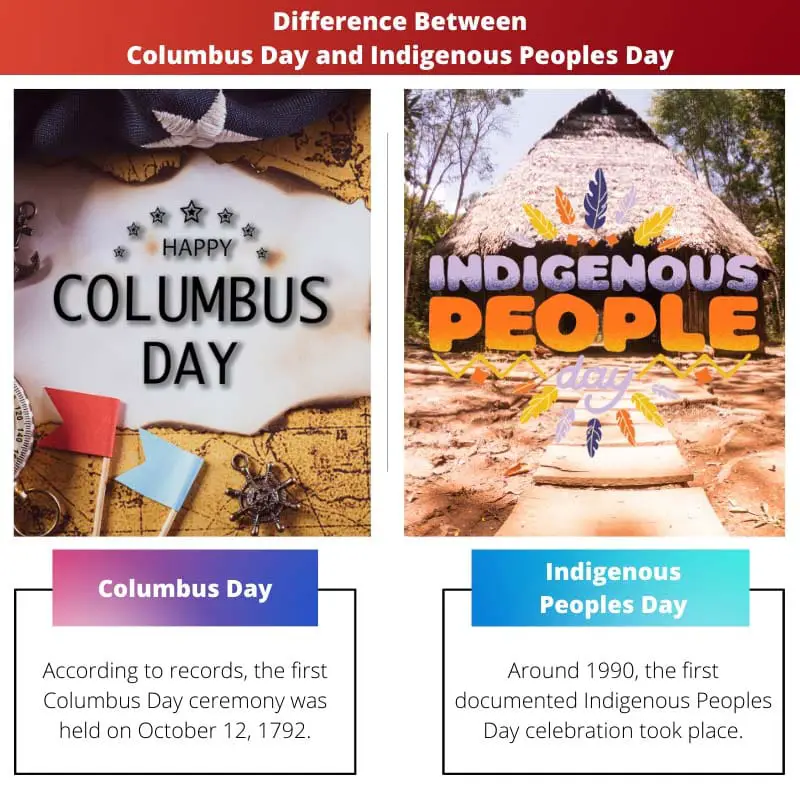Columbus Day and Indigenous Peoples’ Day are celebrated on the same day every year on the second Monday in October, but they are not the same holiday.
They’re two distinct traditions with distinct beginnings.
Indigenous Peoples’ Day and Columbus Day have a shared history that includes their rich and enduring cultures and acts of institutional oppression and genocide since the arrival of Christopher Columbus in 1492 when white European colonisation of the Americas started.
Key Takeaways
- Columbus Day celebrates Christopher Columbus and his arrival in the Americas, while Indigenous Peoples Day celebrates the history and culture of indigenous peoples.
- Columbus Day is more widely recognized in the United States than Indigenous Peoples Day.
- The celebration of Columbus Day has been controversial due to Columbus’ treatment of indigenous peoples.
Columbus Day vs Indigenous Peoples Day
Columbus Day is a federal holiday in the U.S., which celebrates the anniversary of Christopher Columbus’s arrival in the Americas. It does not acknowledge the people who already occupied the New World. Indigenous Peoples’ Day celebrates and honors indigenous American peoples and commemorates their history.

Columbus Day is a commemoration of Italian immigrants’ history, culture, and accomplishments in the United States and those of Italian origin.
It wasn’t until 1937 that it was declared a national holiday by presidential decree. In 1968, it was designated as a holiday in the United States.
Indigenous leaders made the first publicly recognised demands to celebrate Indigenous Peoples in the 1970s. In 1990, South Dakota became one of the first states to replace Columbus Day with a Native Peoples’ Day.
In 2014, Vermont became the first state to adopt Indigenous Peoples Day as an alternative holiday.
Comparison Table
| Parameters of Comparison | Columbus Day | Indigenous Peoples Day |
|---|---|---|
| Founded on | According to records, the first Columbus Day ceremony was held on October 12, 1792. | Around 1990, the first documented Indigenous Peoples Day celebration took place. |
| Description | Christopher Columbus’ landing in the Americas is commemorated on Columbus Day is a national holiday in other Latin American and other nations. | Native American customs and heritage are honoured and celebrated on Indigenous Peoples Day, a national holiday in the United States. |
| Support of | It is commemorated in support of Christopher Columbus. | It is commemorated in opposition to Christopher Columbus and his ideals and accomplishments. |
| Purpose of celebrating | On October 12, 1492, the Italian adventurer Christopher Columbus arrived in the Americas. | The goal of Indigenous Peoples Day is to raise awareness of and safeguard the rights of indigenous peoples’ rights worldwide. |
| Definite description | “Columbus” in Columbus Day refers to the Italian explorer Christopher Columbus. | “Indigenous” in Indigenous Peoples Day refers to something that is “originated in and unique to a specific region or country.” |
What is Columbus Day?
Columbus Day recalls the arrival of Christopher Columbus in 1492 to what is now the Bahamas and commemorates his subsequent voyages in search of a new trade route to India and other parts of Asia via the New World.
It’s celebrated as an official holiday in many Central and South American countries, including Argentina, Colombia, and Venezuela.
In the United States, it’s considered a federal holiday that falls on the second Monday in October and is sometimes viewed as an opportunity for Italian-Americans to honour their heritage.
Many businesses make it a day for special sales or discounts for employees and customers alike. In some communities, parades honour Christopher Columbus and Italian culture, while others celebrate with ethnic festivals featuring Italian food and vendors selling goods from Italy.
Christopher Columbus sailed from Spain in August 1492 to explore an ocean route to India and China. On October 12, 1492, his expedition landed on an island in the Bahamas after first sighting land three days earlier.
Columbus named this island San Salvador (meaning “Holy Savior”). He travelled to present-day Cuba and other Caribbean islands, believing them part of Asia.
Columbus returned to Spain in August 1493 and reported his findings; he also lobbied for a new voyage and promised that profits would pay for the costs of war against the Muslims of Granada (at the time part of Al-Andalus).

What is Indigenous Peoples Day?
Native Americans in California created Indigenous Peoples Day in protest of plans to commemorate Columbus’ landing in the Americas on the 300th anniversary of his arrival.
Many states have now made Indigenous Peoples’ Day an official celebration.
Indigenous Peoples’ Day is frequently marked in ways that recognise and celebrate Indigenous Peoples while also working on ongoing abuses and injustices embedded in it, such as disproportionate poverty and the erasure of Indigenous identity.
Indigenous Peoples Day was first celebrated in Berkeley, California, in 1992, when it was observed as a counter-celebration on October 12. The following year, it gained national recognition from President Bill Clinton.
In 2014, Vermont became the first state to adopt Indigenous Peoples Day as an alternative holiday. Today, it is celebrated in at least ten states: Alaska, Arizona, Colorado, Hawaii, Oregon, South Dakota, Texas (only by some cities), Vermont, Washington and Wisconsin.
The new holiday is meant to commemorate Native Americans who lived in the U.S. before European settlement while also honouring their contemporary communities.
Many Native Americans consider Columbus Day an insult, which resulted in the deaths of many indigenous people.
While some people observe Columbus Day as a federal holiday, others want to use the date for more uplifting purposes.
Main Differences Between Columbus Day and Indigenous Peoples Day
- According to records, the first Columbus Day event took place on October 12, 1792, while the first confirmed Indigenous Peoples Day commemoration took place around 1990.
- Columbus Day is a federal national holiday in Latin America and other countries, commemorates Christopher Columbus’ arrival in the Americas; Indigenous Peoples’ Day, on the other hand, is a national holiday which is to celebrate Native American customs and heritage.
- The Italian explorer Christopher Columbus is honoured on Columbus Day, while Indigenous Peoples Day honours anything “unique and originated in to a certain region or country.”
- While Columbus Day is celebrated in honour of Christopher Columbus, Indigenous Peoples Day is celebrated in opposition to Christopher Columbus’ ideals and work.
- The purpose of Columbus Day is to honour Christopher Columbus’ landing in the Americas on October 12, 1492. The purpose of Indigenous Peoples Day, on the other hand, is to promote awareness of and protect the rights of indigenous peoples all over the world.

- https://psycnet.apa.org/journals/cdp/27/1/1/
- https://www.tulalipnews.com/wp/wp-content/uploads/2021/10/SYS-10162021.pdf
